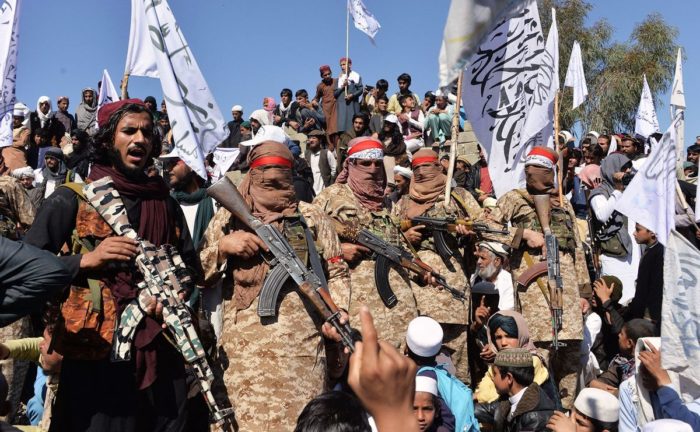
Rebranding the Taliban
The U.S. and its allies are now out of Afghanistan, leaving the Taliban in control. It is a remarkable victory for the Taliban; there were fireworks and celebrations as the last U.S. plane left the Kabul airport.
Once the celebrations are over, of course, reality will set in. Afghanistan has vast troubles, and people are scrambling to leave. Taliban leaders face a daunting set of challenges.
Perhaps the biggest issue is branding; the Taliban has to rebrand the organization to have any hope of long-term success leading the country.
The Taliban’s Branding Problem
The Taliban has a classic brand problem. Perceptions are high; people know the Taliban. Unaided awareness is likely over 90% across much of the world. But the perceptions, for many people, are very negative. I suspect a branding study would show the group is perceived as extreme, violent, scary and dangerous.
These perceptions are firmly established and come from experience. When the Taliban led Afghanistan from 1996 to 2001, there was one story after the next about extreme actions, from harsh punishments for seemingly small crimes to the destruction of historic treasures. During the Afghanistan conflict, the Taliban deployed suicide bombers and road-side explosives, killing troops and civilians.
The problem is that to lead Afghanistan, the Taliban needs help from the global community – governments, NGOs, financial institutions, and investors. Few organizations will be willing to work with the Taliban given current brand perceptions.
The Taliban clearly knows this. Over the past few days, the organization has made statements promising an Islamic state with a more balanced approach. The Taliban let the U.S. depart; the group apparently wasn’t behind the tragic attack last week.
The Path Forward
Can the Taliban pull off a rebranding? This won’t be easy. Brands with high awareness tend to have very sticky brand perceptions. Still, the Taliban has something of a fresh start; this is a moment when people may be open to reconsidering the group. Here are several things that would help.
Deal with the Basics
One of the great marketing lessons is that it is difficult to sell a bad product. You can be the most gifted marketer in the world, but if your product simply isn’t good, your efforts will ultimately fail.
The first task for the Taliban is getting the country working again: forming a government, restoring the financial system, making sure there is enough food, keeping the electricity on, reopening schools.
Avoid Negative Stories
The Taliban has long embraced the power of symbolic, brutal actions. This cannot be the approach now. Journalists around the world will be eager to report the negative stories: reprisals, violent punishments, restrictions on women. Each story reinforces the existing negative brand perceptions.
Create Positive News
It isn’t enough to avoid negative stories. The Taliban needs to create positive news to change brand perceptions. Without new information, the brand meaning won’t change.
So there should be a focus on generating positive stories, especially surprising news that attracts attention. This might mean sending sports teams to competitions, or promoting women to important positions, or letting people depart the country without problems. The Taliban are already starting to do some of this, allowing the Afghan cricket team to compete at a match in November.
Push Against ISIS
Comparisons can be a powerful marketing lever. Kraft Singles cheese slices embraced this approach for years when it advertised that while some cheese slices are made with oil, Kraft Singles are always made with milk. Apple used the same creative angle against Microsoft in one of the most charming advertising campaigns of all time.
The Taliban can use the same technique by focusing on ISIS. The Taliban could put forth the simple argument that, yes, they might be a bit extreme and rough, but they are much better than ISIS. The Taliban could position as the somewhat reasonable Islamic alternative.
In a strange way, the recent airport bombing might actually help the Taliban. The terrible event clearly distinguished between the Taliban and ISIS. The Taliban apparently worked to limit additional attacks; General Kenneth McKenzie, head of US Central Command, noted recently “We believe some attacks have been thwarted by them.” Actively opposing ISIS is a promising approach for the Taliban.
It will be fascinating to see how this develops. In several years, the Taliban may have completed a remarkable rebranding. For the people of Afghanistan, I hope the effort is successful.
Comments RSS Feed